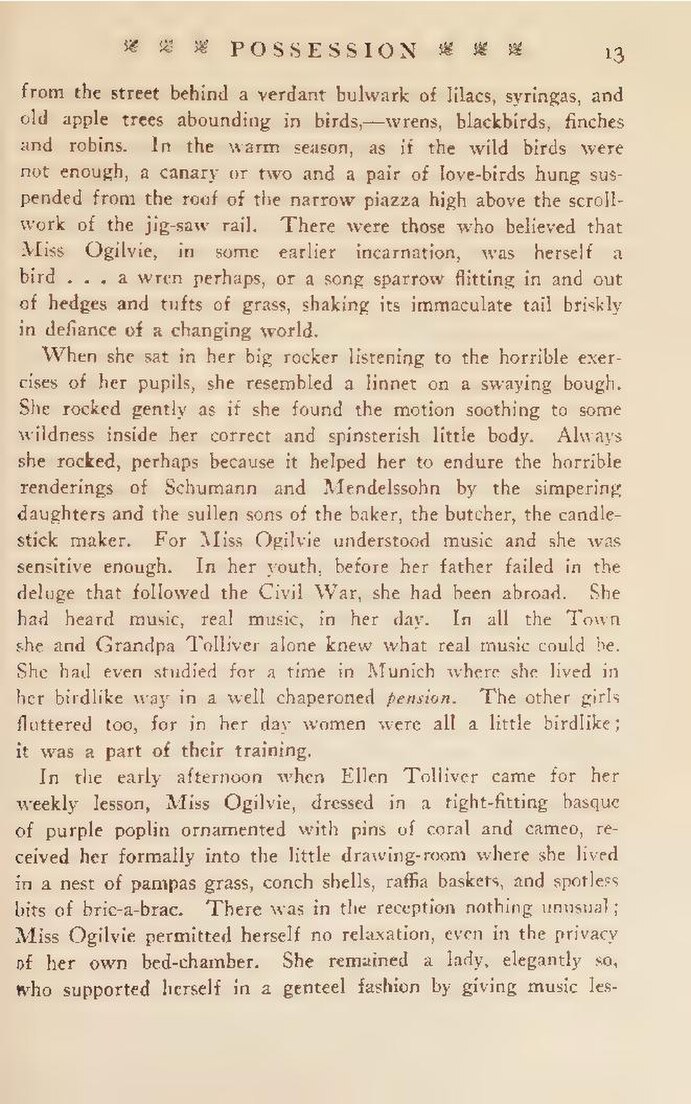from the street behind a verdant bulwark of lilacs, syringas, and old apple trees abounding in birds,—wrens, blackbirds, finches and robins. In the warm season, as if the wild birds were not enough, a canary or two and a pair of love-birds hung suspended from the roof of the narrow piazza high above the scroll-work of the jig-saw rail. There were those who believed that Miss Ogilvie, in some earlier incarnation, was herself a bird . . . a wren perhaps, or a song sparrow flitting in and out of hedges and tufts of grass, shaking its immaculate tail briskly in defiance of a changing world.
When she sat in her big rocker listening to the horrible exercises of her pupils, she resembled a linnet on a swaying bough. She rocked gently as if she found the motion soothing to some wildness inside her correct and spinsterish little body. Always she rocked, perhaps because it helped her to endure the horrible renderings of Schumann and Mendelssohn by the simpering daughters and the sullen sons of the baker, the butcher, the candle-stick maker. For Miss Ogilvie understood music and she was sensitive enough. In her youth, before her father failed in the deluge that followed the Civil War, she had been abroad. She had heard music, real music, in her day. In all the Town she and Grandpa Tolliver alone knew what real music could be. She had even studied for a time in Munich where she lived in her birdlike way in a well chaperoned pension. The other girls fluttered too, for in her day women were all a little birdlike; it was a part of their training.
In the early afternoon when Ellen Tolliver came for her weekly lesson, Miss Ogilvie, dressed in a tight-fitting basque of purple poplin ornamented with pins of coral and cameo, received her formally into the little drawing-room where she lived in a nest of pampas grass, conch shells, raffia baskets, and spotless bits of bric-a-brac. There was in the reception nothing unusual; Miss Ogilvie permitted herself no relaxation, even in the privacy of her own bed-chamber. She remained a lady, elegantly so, who supported herself in a genteel fashion by giving music les-
